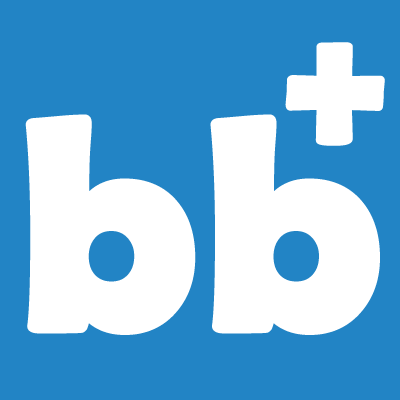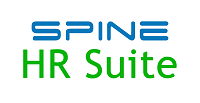Description

BusinessBook Plus

Payroo Payroll
Comprehensive Overview: BusinessBook Plus vs Payroo Payroll
BusinessBook Plus and Payroo Payroll are both tools designed to streamline business operations, particularly in financial management and payroll processing. Here's a comprehensive overview of these products:
BusinessBook Plus
a) Primary Functions and Target Markets:
- Primary Functions: BusinessBook Plus is a comprehensive business management software solution that focuses on accounting, financial reporting, inventory management, customer relationship management (CRM), and project management. It is designed to help businesses automate and streamline their financial processes and maintain detailed records.
- Target Markets: This tool is targeted at small to medium-sized businesses (SMBs) that require an integrated solution for managing various aspects of their operations. Industries that benefit from BusinessBook Plus typically include retail, manufacturing, service-based businesses, and others that demand robust accounting and project tracking capabilities.
b) Market Share and User Base:
- BusinessBook Plus is one of many options available in the SMB market for integrated business management tools. Its market share might be smaller compared to major players like QuickBooks or Xero, especially if it is a newer entrant or geographically limited. The user base would largely consist of businesses looking for a comprehensive solution with both accounting and project management features.
c) Key Differentiating Factors:
- Integration of Features: The combination of accounting, CRM, and project management into one platform can be a significant differentiator, reducing the need for multiple applications.
- Customization and Flexibility: Offers customizable modules to cater specifically to the unique processes of different businesses.
- User Experience: Focus on user-friendly interfaces and easy setup which appeals to businesses without dedicated IT support.
Payroo Payroll
a) Primary Functions and Target Markets:
- Primary Functions: Payroo Payroll is a dedicated payroll software that focuses on automating payroll processes, tax calculations, compliance, and employee management. It offers features such as automatic tax updates, RTI submissions, pension auto-enrollment, and payslip generation.
- Target Markets: The primary target market for Payroo Payroll includes small to medium-sized enterprises (SMEs) and accountants who require an efficient and compliant payroll processing tool. This product is particularly appealing to businesses in jurisdictions with stringent payroll regulations, such as the UK.
b) Market Share and User Base:
- Payroo Payroll operates in a competitive payroll software market dominated by larger brands like ADP, Gusto, and Sage. However, it has carved a niche for itself, especially among smaller companies and accountants who prioritize ease of use and compliance without high costs. The user base typically includes SMEs and accounting firms that need reliable, cost-effective payroll solutions.
c) Key Differentiating Factors:
- Regulatory Compliance: Focuses extensively on compliance with UK payroll regulations, making it a trusted tool for businesses operating within the UK.
- Affordability: Offers competitive pricing structures that make it an attractive option for small enterprises seeking cost-effective payroll management.
- Ease of Use: Known for its straightforward interface and easy setup, reducing the learning curve for new users who may not have extensive payroll processing experience.
Comparison and Conclusion
While BusinessBook Plus and Payroo Payroll are both associated with business operations, they serve distinct functions. BusinessBook Plus is a comprehensive business management tool with a focus on broader financial and project management needs, whereas Payroo Payroll is specialized in payroll processing.
The choice between these products will largely depend on a company's specific needs—whether it seeks a broad management tool or a focused payroll solution. For businesses looking for seamless integration of their financial systems, BusinessBook Plus may be ideal. However, those needing to ensure payroll compliance and management with minimal investment might lean toward Payroo Payroll.
Contact Info

Year founded :
Not Available
Not Available
Not Available
Not Available
Not Available

Year founded :
Not Available
Not Available
Not Available
Not Available
Not Available
Feature Similarity Breakdown: BusinessBook Plus, Payroo Payroll
When analyzing BusinessBook Plus and Payroo Payroll, it's important to evaluate their core functionalities, user interface design, and any distinguishing features. Although both products aim to assist businesses in their operations, they cater to slightly different needs—business management and payroll processing, respectively. Here's a breakdown of their similarities and differences:
a) Core Features in Common
-
Payroll Processing:
- Both platforms handle payroll processing, though Payroo Payroll is specifically designed with this as a primary function, offering more detailed payroll-related features.
-
Employee Management:
- Both products likely offer basic employee management capabilities, including managing employee data, calculating wages, and maintaining employment records.
-
Compliance and Reporting:
- They both likely provide some compliance management tools, such as tax filing support and the generation of reports, although the depth and focus may vary.
-
Integration Capabilities:
- Both systems could support integrations with other business software, allowing data transfer between accounting tools, HR systems, and more.
b) User Interface Comparison
-
Design Philosophy:
- BusinessBook Plus: May have a broader business management focus, potentially offering a more comprehensive dashboard that integrates various business functions.
- Payroo Payroll: Tends to have a more streamlined and focused user interface, emphasizing payroll tasks and efficiency.
-
Intuitiveness and Usability:
- Both platforms should prioritize easy navigation, though Payroo Payroll might have more specialized features directly related to payroll processing that are intuitive to users familiar with HR tasks.
-
Customization:
- Both interfaces could offer customization options for users, but BusinessBook Plus might provide more due to its broader business management scope.
c) Unique Features
-
BusinessBook Plus:
- Comprehensive Business Management: Likely offers tools beyond payroll, such as CRM, project management, and broader financial reporting.
- Inventory Management: May include features for managing stock levels, suppliers, and purchasing.
-
Payroo Payroll:
- Enhanced Payroll Functions: Offers detailed payroll-specific features, such as automatic tax calculations, direct deposits, and more frequent updates on payroll legislation.
- Dedicated HR Tools: Possibly includes more refined tools specific to HR needs like detailed leave management, timesheet tracking, and employee self-service portals.
In summary, while both BusinessBook Plus and Payroo Payroll share some core business functionalities, their unique value propositions center on their respective focuses: broader business management for the former and specialized payroll operations for the latter. The choice between them depends on whether a business needs comprehensive management tools or a focused payroll solution.
Features

Project Tracking
Client Management
Communication Tools
Invoicing & Payment
Contact Management
Team Collaboration
Task Management
Schedule Management

Compliance & Reporting
Employee Management
Payroll Processing
Best Fit Use Cases: BusinessBook Plus, Payroo Payroll
When evaluating BusinessBook Plus and Payroo Payroll, it's important to consider the specific needs and scenarios where each product excels. Here's a breakdown:
a) Best Fit Use Cases for BusinessBook Plus
BusinessBook Plus is likely an all-in-one business management tool. It would be best suited for:
-
Small to Medium Enterprises (SMEs): Businesses that need a comprehensive tool covering various aspects like accounting, CRM, project management, and inventory tracking can benefit from an integrated solution like BusinessBook Plus.
-
New Startups: Startups that require a low-cost solution with multiple functionalities to manage their business operations without investing in several distinct software solutions.
-
Freelancers and Consultants: Professionals who handle different facets of their business themselves, from financial management to client engagement, can utilize BusinessBook Plus for streamlined operations.
-
Retail and eCommerce Businesses: Those needing inventory management along with customer relationship management and sales tracking would find BusinessBook Plus beneficial.
b) Preferred Scenarios for Payroo Payroll
Payroo Payroll is designed specifically for payroll processing. It would be the preferred choice for:
-
Small Businesses: Companies with a straightforward payroll process and limited resources to invest in large payroll departments.
-
Organizations with Compliance Needs: Businesses that need to stay current with tax regulations and ensure compliance. Payroo Payroll likely offers updates and support in these areas.
-
Companies with Remote or Diverse Teams: Businesses with employees in different regions needing a reliable payroll system that handles various local tax codes and regulations efficiently.
-
Contractors and Accountants: Professionals who manage payroll for multiple clients would find a dedicated payroll system advantageous for handling transactions across different businesses.
d) Catering to Different Industry Verticals or Company Sizes
Both products cater to various industry verticals and company sizes through their specialized features:
-
BusinessBook Plus is versatile across industries like retail, professional services, and manufacturing thanks to its comprehensive management capabilities. It can adapt to the needs of each sector with modifiable features, fitting both startups and established SMEs.
-
Payroo Payroll offers industry-independent payroll processing. It's especially appealing to sectors with diverse workforce models, such as advertising, media, tech companies, and healthcare, where payroll can be complex due to varying employee contracts and compliance requirements.
For companies of all sizes, BusinessBook Plus provides a robust platform to manage multiple business operations, while Payroo Payroll offers focused payroll solutions ensuring accuracy and compliance. The choice between them would depend on whether the business is looking for an integrated management tool or a specialized payroll processing system.
Pricing

Pricing Not Available

Pricing Not Available
Metrics History
Metrics History
Comparing undefined across companies
Conclusion & Final Verdict: BusinessBook Plus vs Payroo Payroll
To determine which product offers the best overall value between BusinessBook Plus and Payroo Payroll, it's important to assess various aspects including core functionality, ease of use, pricing, customer support, and additional features.
a) Best Overall Value
Payroo Payroll generally offers the best overall value for small to medium-sized businesses that require robust payroll processing capabilities. It provides comprehensive payroll features that are user-friendly and cater specifically to the needs of efficiently managing payroll tasks. On the other hand, BusinessBook Plus is better suited for businesses that need a broader range of financial management tools, beyond just payroll processing, offering integration with accounting features.
b) Pros and Cons
BusinessBook Plus:
-
Pros:
- Combines accounting and financial management functionalities, providing a holistic financial management system.
- Offers better integration with certain accounting software, which can be beneficial for businesses looking to streamline their financial operations.
- Versatile for businesses needing more than just payroll capabilities.
-
Cons:
- The complexity of features may present a steeper learning curve for users primarily interested in payroll.
- Might be more cost-intensive if you only need payroll functionalities without the extended accounting features.
Payroo Payroll:
-
Pros:
- Payroll-specific software with a strong focus on simplicity and ease of use.
- Competitive pricing for its payroll features compared to bundled software.
- Designed to handle payroll tax calculations and compliance, reducing the burden on smaller HR teams.
-
Cons:
- Limited to payroll functionalities, which might necessitate additional software for comprehensive financial management.
- May not integrate as seamlessly with broader accounting solutions as BusinessBook Plus would.
c) Recommendations for Users
-
Assess Your Needs: If your primary need is a simple and efficient payroll system that is easy to learn and operate, Payroo Payroll is likely the better choice. It does not overwhelm with unnecessary additional features and focuses on doing payroll well.
-
Broader Financial Management: If your business requires a more comprehensive suite that can handle accounting alongside payroll processing, consider BusinessBook Plus. This might reduce the need for multiple software solutions and provide better integration with existing systems.
-
Budget Considerations: Carefully evaluate your budget. Payroo Payroll can be more cost-effective if payroll is your primary need, whereas BusinessBook Plus might justify a higher expense with its additional capabilities.
-
Future Scalability: Consider your business's future growth and software scalability needs. BusinessBook Plus may offer better scalability options if you anticipate needing more extensive financial management features as you grow.
Making the final decision should be based on a detailed analysis of current needs, anticipated growth, and budgetary constraints. Testing both products through free trials or demos can also provide practical insights that align with your business operations.
Add to compare
Add similar companies



